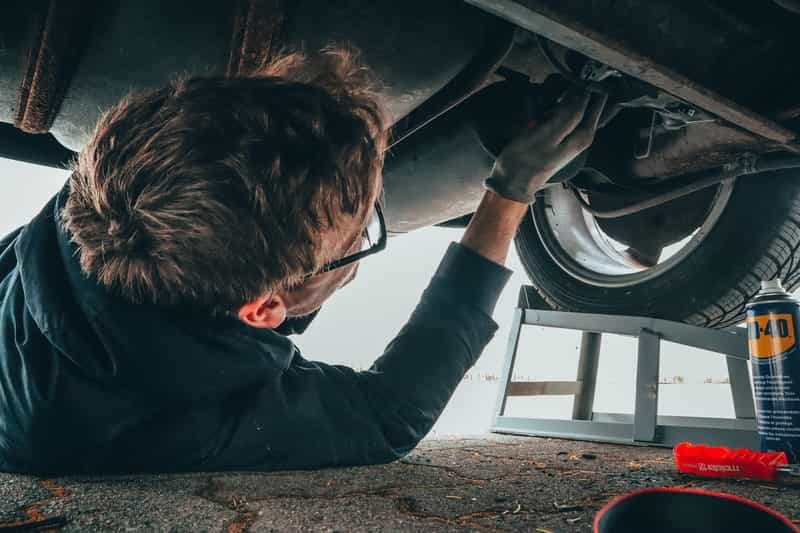The key to keeping your car in top condition is proper maintenance. It also goes a long way to safeguard your safety, and the safety of your fellow drivers and passengers. Here are eight ideas to implement to keep your car in excellent condition.
1. Check the Engine Oil
Do this regularly, and if the vehicle is in excellent condition, do all checks monthly; But if you discover oil leaks, do it more often. To get an accurate dipstick reading, park the car on level ground. Avoid overfilling. And if you discover a leak, find its source and repair it as soon as possible.
2. Maintain and Inspect Tires
Proper maintenance of your car’s tire pressure will help reduce wear and tear and ensure the vehicle gives you good gas mileage. Maintaining the tires includes knowing the recommended pressure, testing the PSI, then inflating or deflating the tires as required.
A flat tire is a danger to you and your car, and there are several steps you should take to avoid a blowout. These include rotating the tires every 5,000 to 8,000 miles and being on the lookout for tire recalls.
Read Also: Top 10 Best Tires In The World
3. Cooling System Maintenance
Keeping your car’s cooling system in good shape is really important for how well it runs. Start by checking the coolant levels and ensuring they are within the recommended range. This should be done monthly for a vehicle in optimal condition, but if you notice any signs of coolant leakage, increase the frequency of checks. Also, park your car on a flat surface to get an accurate coolant level reading. If your car gets too hot, it can really mess up the engine, so it’s important to fix any cooling system problems right away. If you see any damage to the cooler and think it’s time for a replacement, try auto cooler parts from Mammoth. A well-maintained cooling system not only prolongs the lifespan of your vehicle but also ensures it runs efficiently, preventing costly repairs down the line.
4. Timing Belt Replacement
A car’s engine is fitted with a timing chain or a rubber composite timing belt. This device is used to connect the camshaft to the crankshaft, and they are synchronized by the opening and closing of the engine’s valves. If the engine has a timing belt, read the owner’s manual and find out when you should replace the belt. Rubber belts break, and when this happens, the engine fails. To avoid this problem, replace the timing belt at the correct intervals as your automaker recommends, and this is usually between 50,000 and 100,000 miles. It is not cheap to replace a timing belt, but the cost is a lot less than rebuilding the entire engine.
5. Check the Fluids
To keep your car running smoothly, keep all fluids at the appropriate levels. Thus, check the:
• Brake fluid
• Engine oil
• Transmission fluid
• Power steering fluid
• Coolant
If any of these fluids leak, it will affect the way your car moves. If you notice a leak, try to identify the fluid by its color. Doing this will help determine the source of the leak and speed up the repair process.
6. Wash the Car
If possible, wash your car every week. Wash the body, and if there is a need, hose out the undercarriage and the fender wells to eliminate dirt and road salt. If the water beads become more extensive, wax the finish.
7. Check the Lights
A burnt-out or broken bulb puts you and the other road users in danger and might get you a ticket as well. Find out how to inspect every bulb in your car. If a bulb does not turn on, find an expert to determine whether the fuse or the bulb needs replacement.
Your car’s headlights are the primary safety lights, so take extra measures to keep them bright. Take steps such as dusting the lenses and replacing the bulbs when they become dim.
8. Replace the Engine Air Filter
For your engine to operate efficiently, it depends on the proper mixture of air and fuel. And for this to happen, it is crucial to ensure the air entering your car’s engine does not contain any particulate matter, debris, or other contaminants that can undermine the engine’s efficient operation. Otherwise, your car will suffer a significant reduction in horsepower, poor gas mileage, and the production of unusual sounds. Sometimes, the engine can also misfire. So, replace your engine air filter according to your car manufacturer’s recommendation.
Although basic car maintenance guidelines recommend you stick to the car manufacturer’s recommendation, it is advisable to check your air filter and investigate its integrity and condition. So if it is too dirty, but you have not attained the mileage recommended for replacement by the car manufacturer, it is prudent to replace it. Remember, many circumstances can affect the condition of your engine air filter. For example, if you take your car for long drives each weekend, or use it daily in stop-and-go traffic circumstances, most likely debris and dirt will accumulate in the filter much faster than driving it over long distances rarely or driving it on open roads. Although your owner’s manual will give you a rough estimate of when you need to replace the filter, it is better to check the air filter visually.
It is pretty easy to take good care of your car. Your car owner’s manual will inform you of all the basic vehicle maintenance activities you need to perform. Adhering to this information will help keep your vehicle in fine condition. However, when in doubt or dealing with a more complicated situation, consult the mechanics at Genesis Autoworks.
You may also like to read: Different ways to increase life of car brakes


